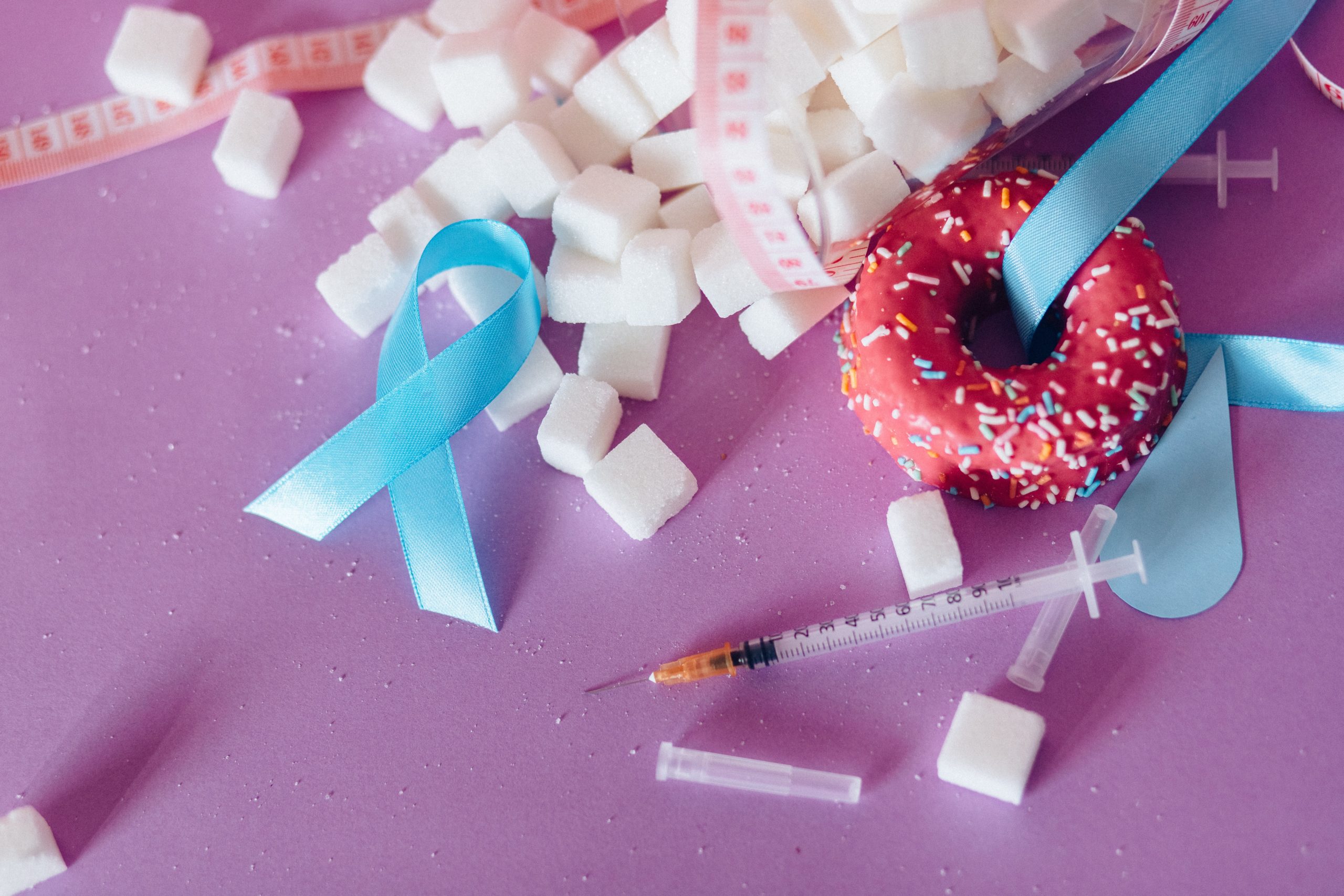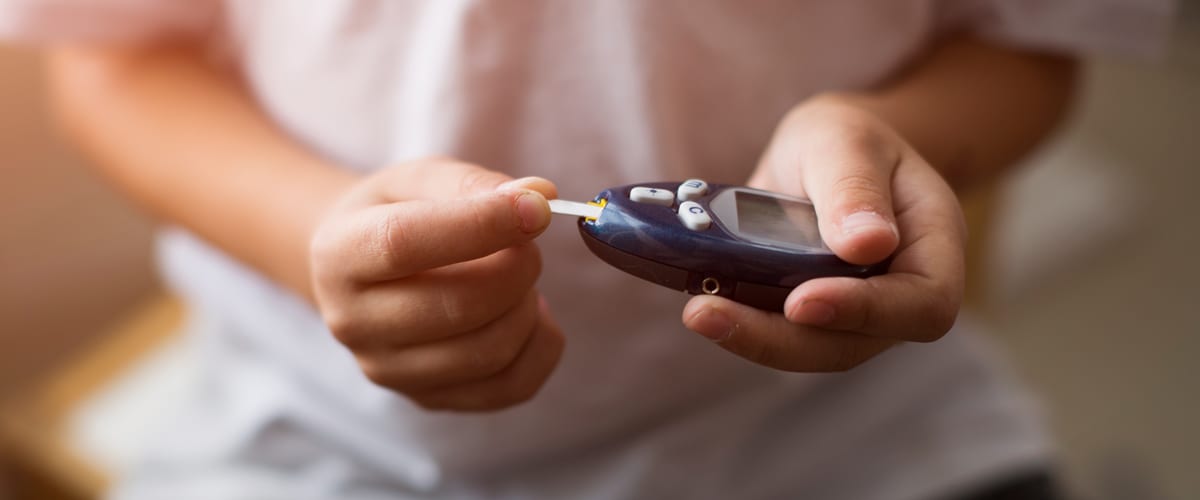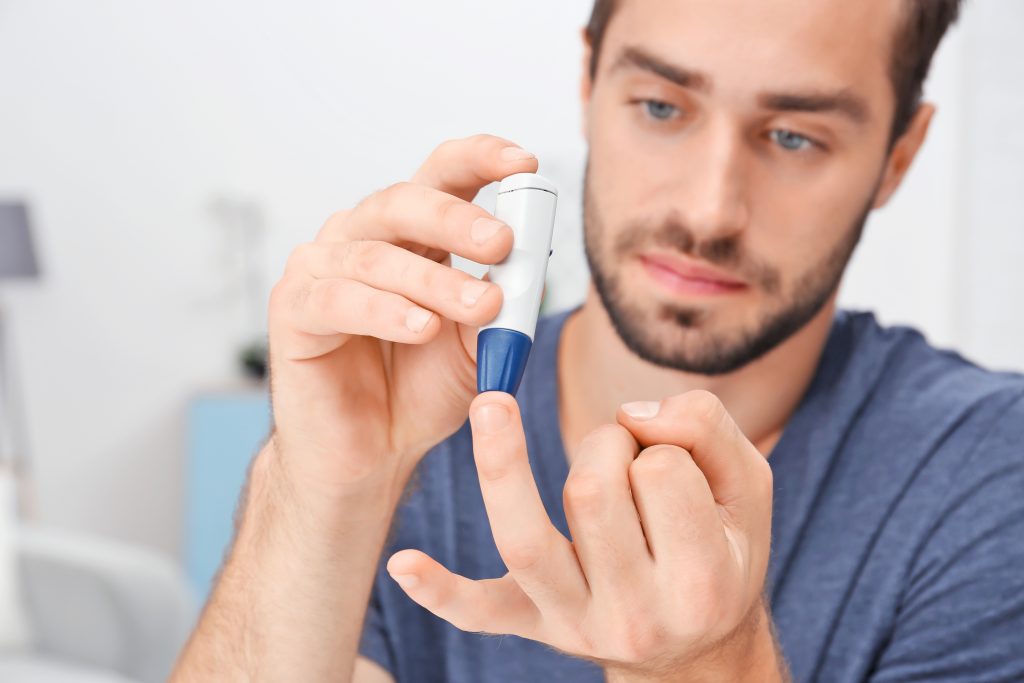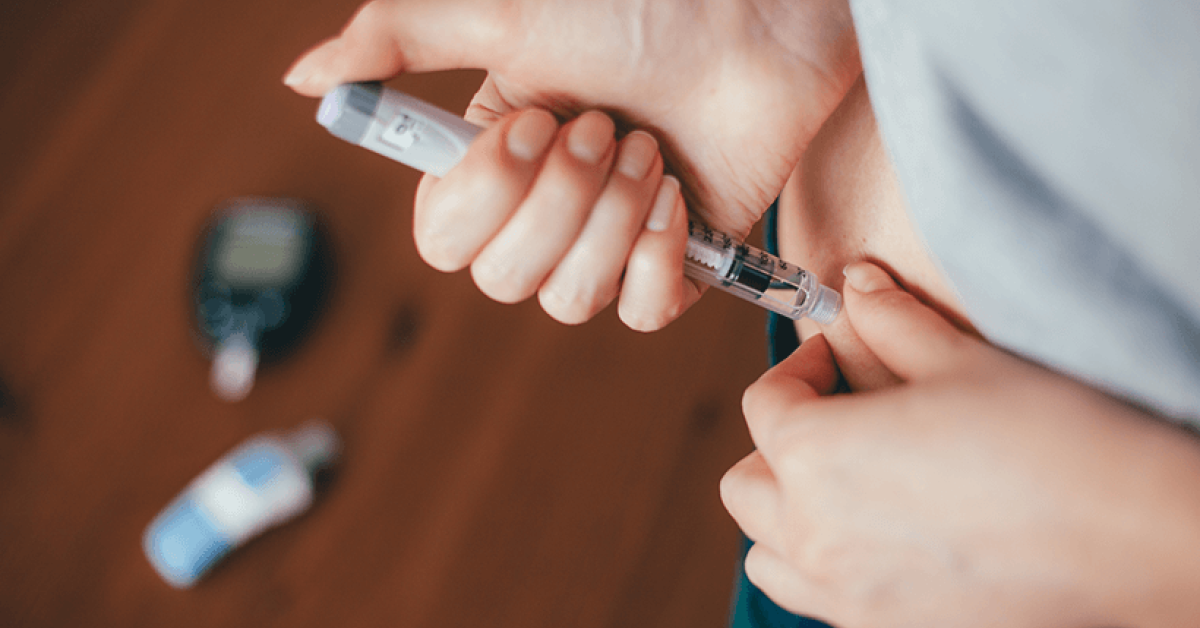Home » How to Accept A Diabetes Diagnosis
How to Accept A Diabetes Diagnosis

Charlie Fletcher

Charlie Fletcher


Chris Stocker
To learn about Diabetes Life Solutions commitment to transparency and integrity, read our Editorial Disclosure
Last Updated on November 22, 2025
Receiving a diabetes diagnosis is, understandably, an emotional and stressful experience. Managing diabetes is not easy — most people know this. You’ve likely seen someone else struggling with the disease, perhaps in the media, or know someone personally who is battling with diabetes, and the thought of dealing with it yourself may feel overwhelming.
However, despite all that you know or all you’ve seen, diabetes is manageable. It is possible to live a long, normal, and healthy life with diabetes. Once you get over the initial stages of acceptance, which is normal and takes time, you can learn to manage your diabetes, so it does not dictate your entire life.

In truth, many people find that the changes they make to manage their diabetes can improve how they feel, as it can benefit the entirety of their mental health and wellbeing. For example, getting your diabetes under control often requires eating healthy foods, being physically active, and getting better sleep — all things that can help a person feel better physically and mentally in general.
Before you learn to manage your diabetes, however, you must first learn to accept the diagnosis and cope with the emotional stress of the situation.
Quick Article Guide
Here’s what we’ll cover in this post:
Your Emotions After a Diabetes Diagnosis
Though many traditionally associate the stages of grief with a loss, such as the loss of a loved one or the end of a relationship, you can also go through these same stages when you are diagnosed with an illness. This is because receiving a disease diagnosis is like dealing with a loss. You are, in a way, losing who you once were and now have to make potentially drastic changes to cope with a new reality.
It’s important to let yourself grieve. Trying to bury your emotions and appear strong can often do more harm than good. It’s okay to be sad, angry, or scared about your diabetes diagnosis. It’s more about accepting how you feel that is important rather than accepting diabetes itself — at least initially.

Just as you would with a loss, you will likely experience the same stages of grief with your diabetes diagnosis, which include:
- Denial: Initially, you may want to completely ignore your diagnosis and how you feel. You may have a strong urge to simply go on living as you were. While it is dangerous to get stuck in this stage, it is normal to feel this way. It is actually very common for people in this first stage to seek a second opinion from another doctor. When you refuse to believe this diagnosis is a reality, you will find any way you can to validate your denial. It is perfectly okay to do this. Sometimes, seeking a second opinion can help you process and move beyond your denial much quicker.
- Anger: Once you move past denial and acknowledge your diagnosis, you may begin to feel rage or anger that your life has been turned upside down. You may think that it is unfair and that you don’t deserve this, which can be a difficult emotion to move past. In this stage, it can be helpful to talk to others to keep you from stewing over your anger.
- Bargaining: After anger comes bargaining. This is when you may ask questions like, “why me?” or make wishes that it isn’t true and hope that a mistake was made. Or you may try to bargain with the universe in a way by saying or thinking things like, “I promise I’ll be a better person if it means I can have my life back.” This stage can also involve actual bargaining with the people in your life, such as family, partners, or doctors. You might try to bargain with them to avoid things regarding your diagnosis and make excuses.
- Depression: Once the reality of your situation starts to sink in and you realize that no amount of anger, denial, or bargaining will change your situation, you will likely start to feel sad and depressed. While this stage can feel awful, it is a good sign that you are closer to acceptance. In this stage, it is helpful to let yourself be sad and grieve whatever it is you feel you have lost. Those who try to avoid these feelings can sometimes revert backward in the stages and may go through all of them all over again.
- Acceptance: It is only once we have fully allowed ourselves to mourn and grieve that we can truly move on and accept our new life. Once you have sat with your emotions and processed them, then you can begin to accept your diagnosis and learn to manage it.
Tips for How to Cope and Accept Your Diabetes Diagnosis
Outside of dealing with the stages of grief, there are things you can do to help yourself cope with and manage the distress of dealing with a diabetes diagnosis. There is no right way to go about this, as everyone handles their grief and despair differently. Still, the following tips can help guide you and give you healthier outlets for dealing with the various emotions you may feel.

- Listen to your mind and your body. Again, ignoring your feelings will only make the situation worse. Pay attention to how you feel and consider what you need to help you feel better.
- Talk to someone. It’s okay if you need some alone time to process, but we can sometimes get stuck in our heads, stewing over our emotions when we avoid speaking to others. Talking with loved ones, doctors, and even therapists about your emotions can help you better process them and find ways to cope.
- Talk to your doctors or others with diabetes — perhaps a support group — to not only process your own feelings but to learn how to deal with the feelings with others around you and how they may treat you now that you have diabetes.
- If you are worried about the financial burden of dealing with diabetes, don’t be afraid to ask for help. Talk to your doctor, the receptionist, your own insurance provider, or community health centers about getting financial assistance to help pay for your medical expenses. They may know about programs that can assist you with these costs.
- Take it one day at a time. Do not let yourself get overwhelmed by everything you need to do to start managing your diabetes. Make a list if you need to, and take it one step at a time. Rushing into it before you have time to process can make you even more distressed. And again, don’t be afraid to ask for help or let others assist you. It is not a sign of weakness to accept help from others. Diabetes is not easy to manage, and the more love, help, and support you can find, the better.
How to Manage Your Diabetes After Diagnosis
Aside from managing your diabetes medication and insulin treatments, there are a number of other things you can do to help you live healthier and happier after receiving a diagnosis. In general, it’s best to live as healthy as possible as this can help you not only manage your diabetes but other ailments and mental health issues that you may struggle with throughout your life.
Your hormones, for example, can become unbalanced as you age, and those with diabetes — men in particular — can struggle with low testosterone. Aside from affecting your diabetes, dealing with unbalanced hormones can trigger many other health issues. Low testosterone specifically can result in insulin resistance. So it’s important to take steps to control your diabetes as well as your hormones to avoid further complications.

Eating healthy foods and getting enough exercise are essential to help you regulate your hormones and manage your diabetes. The healthier you are, the fewer issues you will have. The body’s response to insulin is much better when it is healthy and regulated, so eating balanced meals and getting regular exercise are essential. Sleep is also critical for those with diabetes. When we don’t get enough sleep, it can throw our entire body out of balance. Sufficient sleep is necessary to regulate our system and help manage the effects of diabetes.
Final Thoughts
Learning to accept a diabetes diagnosis isn’t easy. It may take time and looks different for everyone. Just remember that you don’t have to go through it alone. If you are struggling with your emotions or what to do to manage your health, reach out to someone. Thousands of people are living with diabetes, and there are numerous avenues you can seek out for support to help you manage things going forward. Try to interact on diabetes communities such as TuDiabetes, Reddit, or even Beyond Type 1. THere are so many online resources that most people can relate to, and help stay connected with their peers. Peer support is extremely helpful when living with Diabetes. Remember, you’re not alone in your struggles with diabetes. Lean on others that understand what you live with.

Charlie Fletcher
Charlie Fletcher is a freelance writer passionate about workplace equity, and whose published works cover sociology, politics, business, education, health, and more.
Find out how much life insurance with Diabetes Life Solutions costs